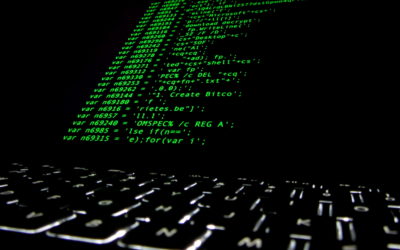More than 86 million Americans use the social media app TikTok to create, share, and view short videos, featuring everything from cute animals and influencer advice to comedy and dance performances.
Concerned experts point out that TikTok’s parent company, the Beijing-based ByteDance, has been accused of working with the Chinese government to censor content and could also collect sensitive data on users.
What is tech diplomacy and why does it matter?
What is tech diplomacy and why does it matter?
What is tech diplomacy and why does it matter?
- The first tech diplomat to Silicon Valley was appointed by Denmark in 2017 – and now there are around 20 formal or acting tech envoys out of the more than 70 consulates in the area.
- The World Economic Forum has partnered with the Technology Diplomacy Network to launch a new initiative to build trust and collaboration.
- Sebastian Buckup, the Forum’s head of the C4IR Network and Partnerships, and Mario Canazza, C4IR Government Affairs Lead, explain why we need tech diplomats to shape safe future technologies that benefit everyone.
Technology is an increasingly core dimension of global, economic and industry agendas.
Even before the pandemic caused rates of technology adoption to soar, Accenture’s Chief Technology Officer, Paul Daugherty, declared: “Every company is a technology company – some just don’t recognize it yet.”
We’re now seeing the rise of govtech ecosystems, with tech start-ups and small- to medium-sized enterprises providing products and services to aid the digital transformation of administrations – enabling governments to more efficiently serve the public. Global government IT spend is predicted to exceed $600 billion in 2023.
But with the promise of technology comes new challenges around governance, meaning policy-makers are playing catch-up when it comes to regulating tech. Just look at the proliferation of generative AI – both its potential to transform jobs and certain tasks, as well as the risks it poses from copyright infringement to disinformation.
Countries are increasingly deploying tech diplomats to Silicon Valley to directly interact with the companies at the forefront of the Fourth Industrial Revolution on issues touching on human rights and national security.
“Before 2017, technology-related foreign policy was dominated by state-centrism, with a focus on national security and economic relations. As tech diplomacy has evolved, the private sector and civil society are now seen as actors in the field,” explains Patricia Gruver-Barr, co-founder of the Tech Diplomacy Network.
The rise of the tech diplomat
In August 2017, Danish diplomat Casper Klynge became the world’s first Tech Ambassador – representing Denmark’s interests in Silicon Valley.
Over the ensuing years, he has handed the baton on to World Economic Forum tech leadership alumna Anne Marie Engtoft Larsen, and the total number of tech envoys and tech ambassadors has grown to around 20 out of the more than 70 consulates in the San Francisco Bay Area, where Silicon Valley is located.
In June 2022, UN Secretary-General António Guterres appointed Amandeep Singh Gill as his Envoy on Technology, and he is leading the work towards shared principles in a Global Digital Compact. The UN’s Internet Governance Forum meets annually (and most recently in Ethiopia in December).
In September 2022, the EU set up an office in Silicon Valley with Gerard de Graaf at its helm.
But what exactly are tech diplomats and why do we need them?
What is tech diplomacy?
Brazil’s Deputy Consul General and Tech Ambassador, Eugenio Vargas Garcia, sums tech diplomacy up as “the conduct and practice of international relations, dialogue, and negotiations on global digital policy and emerging technological issues among states, the private sector, civil society and other groups”.
It goes further than digital diplomacy, which loosely describes the digital tools countries use to carry out dialogue and achieve their aims, as well as the issues those tools throw up, including privacy, cybersecurity threats and cross-border data flows.
Tech diplomats also have to keep up to date with a wide range of additional emerging technologies, from quantum computing to blockchain and the metaverse, says Garcia.
“They are expected to be able (ideally) to interact with many different sectors, industries and innovation ecosystems, while seeking win-win cooperation with partners in frontier technologies to help promote economic and social development back home.”
As Martin Rauchbauer, co-founder of the Tech Diplomacy Network, explains: “Tech diplomacy is a tool that will be crucial for all diplomats no matter what fields they are in or what countries they are working for. We believe that the digital and technological transformation will soon require that all diplomacy will be tech diplomacy.”
And, Denmark’s Larsen told Tech Monitor: “In the last decade, we’ve seen how nation states are not the only ones defining and shaping … how our society develops and evolves and functions.
“The role of tech ambassador is fundamentally to represent Danish values – the opinions and perspectives of Danish citizens and government – to the global tech industry.”
Why do countries have tech diplomats in Silicon Valley?
Silicon Valley has become a tech diplomacy hub simply because it’s the world’s biggest centre of tech innovation.
It’s where start-ups can piggyback on the existing infrastructure, talent pool and marketplace created by the A to Z of established tech giants, from Apple to Zoom, so it makes sense for policy-makers to have a physical presence.
For De Graaf – who oversaw both the EU’s Digital Markets Act (DMA) and the Digital Services Act (DSA), designed respectively to protect smaller businesses and ensure companies combat harmful content online – having a tech diplomat in the area is now essential.
In an interview with Bloomberg, he said a key part of his role in Silicon Valley would be to help guide those companies through both the DMA and DSA.
His office is running seminars and hosting events to foster dialogue with the aim of ultimately having a collaborative rather than combative relationship with the tech industry.
Larsen told Tech Monitor she’s had a positive response during her time in Silicon Valley: “The tech industry is realizing that this is no longer a question of whether there’s going to be regulation, but a matter of how.”
What is the World Economic Forum doing?
The Forum’s Centre for the Fourth Industrial Revolution (C4IR) officially partnered with the Technology Diplomacy Network to launch in San Francisco on 21 February a platform for informal exchange, trust building and collaboration.
It’s a community of tech diplomats based in Silicon Valley, and will work to share best practices and facilitate dialogue on technology strategy, governance and policy.
“We want to build together with our partners a community in order to share best practices, enhance collaboration, and bring conceptual clarity to this relatively new and emerging field,” says Rauchbauer.
Senior tech diplomats have already been meeting on a more informal basis, and they approached the C4IR to host the Network’s official launch event and provide a platform for more regular meetings.
As Brazil’s Tech Ambassador, Garcia, a participant in the Network, told Devex, effective technology governance demands not just more global participation of tech diplomats, but also coordination between tech diplomats.
The Tech Diplomacy Network will enable not just this, but will also provide new ways for Silicon Valley’s tech diplomats to collaborate with other stakeholders, allowing them all to work together to shape safe future technologies that benefit us all.
This article was republished from the World Economic Forum under a Creative Commons license to point warfighters and national security professionals to reputable and relevant war studies literature. Read the original article.

Member of the Executive Committee and heading Network and Partnerships in the Centre for the Fourth Industrial Revolution, World Economic Forum; prior to that, Head of Programming and Deputy Head of the Global Programming Group, responsible for our Annual Meetings in Davos and China and our expert communities; certified facilitator, public speaker, regular commentator on issues at the intersection of technology, society, and the economy; Professor of Practice at the University of Geneva and the Technical University of Munich, amongst others.
Related Articles
Pentagon leaks suggest China developing ways to attack satellites – here’s how they might work
The recent leak of Pentagon documents included the suggestion that China is developing sophisticated cyber attacks for the purpose of disrupting military communication satellites. While this is unconfirmed, it is certainly possible, as many sovereign nations and private companies have considered how to protect from signal interference.
Ransomware Attack Hits Marinette Marine Shipyard, Results in Short-Term Delay of Frigate, Freedom LCS Construction
The Wisconsin shipyard that builds the U.S. Navy’s Freedom-class Littoral Combat Ship and the Constellation-class guided-missile frigate suffered a ransomware attack last week that delayed production across the shipyard, USNI News has learned.
Fincantieri Marinette Marine experienced the attack in the early morning hours of April 12, when large chunks of data on the shipyard’s network servers were rendered unusable by an unknown professional group, two sources familiar with a Navy summary of the attack told USNI News on Thursday.



